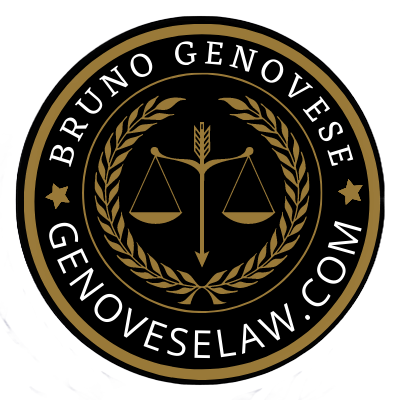Introduction
With data privacy at the forefront of regulatory and consumer concerns, businesses increasingly turn to established frameworks to demonstrate their commitment to protecting personal information. ISO 27701 and the NIST Privacy Framework are two of the most respected privacy standards that provide a structured approach to managing privacy risks.
Both frameworks help organizations enhance their privacy programs, but they differ in scope, structure, and application. Below, we’ll explore the key advantages and disadvantages of each to help you decide which framework aligns best with your organization’s needs.
Understanding ISO 27701 and the NIST Privacy Framework
Before diving into the pros and cons, let’s briefly cover what each framework entails.
- ISO 27701 is an extension of the ISO 27001 and ISO 27002 standards, designed specifically for privacy information management. It provides detailed guidance on establishing, implementing, and maintaining a privacy information management system (PIMS) within an existing information security management system (ISMS).
- NIST Privacy Framework is a voluntary privacy risk management framework created by the National Institute of Standards and Technology (NIST). It is designed to help organizations identify and mitigate privacy risks, with an emphasis on flexibility and adaptability across various regulatory environments.
Advantages of ISO 27701 Certification
- International Recognition and Compliance Support
ISO 27701 is globally recognized and widely accepted as a robust standard for privacy management. For organizations with an international presence, ISO certification often carries weight with clients, regulators, and partners. ISO 27701’s alignment with GDPR and other international privacy laws can simplify compliance by providing a structured approach to managing data privacy obligations.
Best for: Companies operating internationally or serving clients in regions where GDPR compliance is required.
- Integration with Information Security Standards
ISO 27701 builds upon ISO 27001, an internationally recognized standard for information security. This integrated approach allows organizations with existing ISO 27001 certifications to expand their ISMS to include privacy controls, creating a comprehensive data protection framework.
Best for: Companies that already have ISO 27001 certification or those aiming to align both security and privacy practices.
- Clear Privacy Controls and Documentation
ISO 27701 provides specific requirements and controls for privacy management, which results in detailed documentation and defined privacy practices. This clarity can help organizations establish rigorous internal processes, assign accountability, and ensure consistent implementation across the organization.
Best for: Companies seeking structured, well-documented privacy practices with a strong emphasis on accountability.
Disadvantages of ISO 27701 Certification
- Resource-Intensive Certification Process
ISO 27701 certification can be demanding in terms of time, effort, and cost. Implementing the necessary controls, training staff, and undergoing third-party audits to achieve certification requires a significant investment. For small or medium-sized businesses, this resource commitment may be challenging.
Challenging for: Smaller businesses or organizations with limited privacy resources.
- Requires ISO 27001 as a Foundation
Since ISO 27701 is an extension of ISO 27001, organizations must either already be certified in ISO 27001 or implement its controls alongside ISO 27701. This requirement may add complexity, especially for companies that only need privacy controls and do not wish to adopt a full information security management system.
Challenging for: Organizations not interested in pursuing ISO 27001 but still needing a privacy framework.
- Less Flexibility in Framework Structure
ISO 27701 has specific requirements that must be adhered to for certification, which can limit an organization’s flexibility in implementing customized privacy practices. This rigid structure may feel restrictive, particularly for companies that operate in dynamic, fast-paced industries where privacy risks frequently evolve.
Challenging for: Agile businesses needing a more flexible privacy approach to adapt to fast-changing industry demands.
Advantages of the NIST Privacy Framework
- Flexibility and Adaptability
NIST’s Privacy Framework is highly flexible, allowing organizations to tailor the framework to their specific needs, industry, and privacy risks. Unlike ISO 27701, which prescribes specific controls, the NIST Privacy Framework provides a flexible set of privacy functions, categories, and subcategories that can be adapted to align with other frameworks and regulatory requirements.
Best for: Companies in fast-evolving sectors or those with unique privacy needs that require a customizable approach.
- Supports U.S. Privacy Regulations
NIST’s Privacy Framework was developed with U.S. privacy regulations in mind, such as CCPA and HIPAA, making it ideal for organizations that operate primarily within the United States. For companies prioritizing compliance with U.S.-based privacy laws, NIST’s framework provides an adaptable yet compliant approach.
Best for: U.S.-based businesses or those prioritizing compliance with U.S. privacy regulations over international standards.
- Ease of Implementation and Lower Costs
Unlike ISO 27701 certification, NIST’s Privacy Framework does not require third-party certification, which reduces implementation costs and administrative burden. The flexibility to adopt components at your own pace makes it more accessible for organizations with limited resources or those taking an incremental approach to privacy.
Best for: Smaller businesses, startups, or those looking for a low-cost approach to implementing privacy controls.
Disadvantages of the NIST Privacy Framework
- Lack of International Recognition
While NIST is well-regarded in the United States, it does not carry the same level of international recognition as ISO standards. For companies operating globally or serving international clients, NIST’s Privacy Framework may lack the credibility or recognition that ISO 27701 provides. This can be a limitation when working with clients or regulators who prioritize internationally recognized certifications.
Challenging for: Companies operating internationally or those requiring globally recognized privacy credentials.
- No Formal Certification Process
NIST’s Privacy Framework is voluntary and does not offer a certification process. While this flexibility reduces costs, it may also mean that companies adopting NIST cannot “prove” compliance through an official certificate, which can sometimes hinder efforts to demonstrate credibility to external stakeholders.
Challenging for: Organizations that need formal certification for clients, partners, or regulatory requirements.
- Less Detailed Privacy Controls
Compared to ISO 27701, NIST’s framework provides broader guidelines rather than prescriptive privacy controls. While this can be advantageous for flexibility, some organizations may find it lacks the specificity they need to establish rigorous privacy practices and documentation.
Challenging for: Businesses seeking specific privacy controls or those looking for a comprehensive, structured privacy management system.
Making the Right Choice: ISO 27701 vs. NIST Privacy
Deciding between ISO 27701 and the NIST Privacy Framework depends largely on your organization’s unique privacy needs, goals, and resources. Below are some guiding questions to help determine the best fit:
- Is global recognition important for your business? If so, ISO 27701 may be more suitable due to its international acceptance, especially if your organization operates or partners in regions where GDPR or similar privacy laws are in effect.
- Are you primarily focused on U.S. regulatory compliance? For companies mainly addressing U.S.-based privacy laws, the NIST Privacy Framework provides a flexible and adaptable approach that can align with CCPA, HIPAA, and other American regulations.
- What are your resource constraints? NIST’s framework offers a cost-effective, scalable privacy management option, ideal for businesses with limited budgets or those looking to build up privacy controls gradually.
- Do you need formal certification for clients or partners? ISO 27701 offers a certification process that can serve as evidence of compliance and bolster your credibility. NIST, while flexible, lacks formal certification, which may be a disadvantage when clients require proof of a certified privacy program.
Time and Cost Considerations for ISO 27701 and NIST Privacy Framework Audits
When deciding between ISO 27701 certification and NIST Privacy Framework implementation, it’s important to consider not only the operational demands but also the time and financial costs associated with each. External audits for ISO 27701 and the initial setup costs for NIST vary significantly, especially for small and medium-sized businesses. Here’s a breakdown of the typical time and cost commitments involved for each framework.
ISO 27701: Average Audit Time and Costs
Audit Timeframe:
ISO 27701 certification involves a rigorous audit process since it builds on the ISO 27001 standard. For organizations with an existing ISO 27001 certification, the ISO 27701 audit typically takes between 2 to 4 weeks, depending on the organization’s size, complexity, and readiness. However, if ISO 27001 certification needs to be achieved first, the initial audit timeframe can extend by an additional 4 to 8 weeks due to the need for foundational information security measures.
Cost of Certification by External Auditors:
ISO 27701 certification can be costly, especially for businesses new to ISO standards. External audit costs for ISO 27701 certification generally range from $15,000 to $30,000 for small to medium-sized businesses. This cost may increase with additional auditor days, travel, and complexity due to data volume, privacy scope, or industry specifics (such as healthcare or finance). Organizations requiring ISO 27001 certification first should anticipate added expenses of $10,000 to $20,000, depending on audit length and auditor fees.
Other Associated Costs:
- Internal Resources: Preparation, documentation, and ongoing management of ISO 27701 require dedicated personnel, particularly if the organization doesn’t already have privacy or compliance officers.
- Training and Implementation: Achieving compliance might necessitate additional software tools, privacy and security training, and possibly external consultants if internal expertise is limited.
Key Takeaway:
ISO 27701 certification is a long-term investment that provides international recognition and credibility. However, it can be time- and cost-prohibitive for smaller organizations. For businesses with a global footprint or GDPR-driven obligations, ISO 27701’s value often outweighs its high initial costs.
NIST Privacy Framework: Average Implementation Time and Costs
Implementation Timeframe:
Unlike ISO 27701, the NIST Privacy Framework does not require formal certification, allowing businesses to adopt and implement it at their own pace. For small and medium-sized businesses, setting up a NIST-aligned privacy program typically takes 3 to 6 months, depending on the complexity of data processing activities, available resources, and desired level of compliance. This timeframe includes the initial gap analysis, customization of the framework to fit the organization’s specific privacy needs, and final integration with existing security practices.
Costs of External Assistance (if Needed):
While there’s no formal certification audit for the NIST Privacy Framework, organizations may choose to hire external consultants for initial guidance, gap analyses, or compliance checks. Consultant fees for a NIST Privacy Framework setup generally range from $5,000 to $15,000 for SMBs, depending on the level of guidance required and the complexity of the data processing environment. This cost can be reduced if the organization has in-house compliance expertise.
Other Associated Costs:
- Optional Audits and Periodic Reviews: Although not required, periodic privacy audits aligned with NIST standards can cost between $3,000 and $10,000 if conducted by third-party consultants. Regular audits may support compliance maintenance and improve data protection without the higher cost of ISO certification.
- Internal Implementation Resources: Implementing NIST may require assigning internal staff to manage privacy risks, perform regular compliance checks, and document privacy processes. For smaller organizations, this can often be managed without hiring full-time privacy officers.
- Flexible Software and Tools: NIST’s flexibility allows for using cost-effective, modular tools. Open-source or low-cost privacy management tools can help SMBs manage data flow tracking, risk assessments, and incident response, reducing reliance on costly software.
Key Takeaway:
The NIST Privacy Framework offers a more budget-friendly, flexible approach to privacy management without certification costs. For SMBs focused on U.S. compliance or those operating primarily within less regulated markets, NIST can provide a robust privacy program with minimal external costs.
Comparison Summary:
| Aspect | ISO 27701 Certification | NIST Privacy Framework Implementation |
|---|---|---|
| Audit/Implementation Timeframe | 2-4 weeks (ISO 27701 alone); 6-12 weeks with ISO 27001 setup | 3-6 months, self-paced implementation |
| Certification/Consulting Costs | $15,000 – $30,000 (ISO 27701); additional $10,000 – $20,000 for ISO 27001 | $5,000 – $15,000 for initial consulting (optional) |
| Ongoing Compliance Costs | Regular re-certification audits every 1-3 years; costs vary | Optional periodic privacy audits ($3,000 – $10,000) |
| Best For | International recognition, strict regulatory requirements | U.S.-based privacy compliance, adaptable and cost-effective |
Conclusion
Both ISO 27701 and NIST Privacy Framework offer valuable privacy management options, but they serve different needs and budgets. ISO 27701 is a rigorous, resource-intensive certification ideal for organizations that require globally recognized compliance, whereas NIST provides a more flexible, budget-friendly framework suitable for businesses with U.S.-centric privacy obligations or those prioritizing scalability.
By understanding the time and cost requirements of each, organizations can make informed decisions to build privacy programs that align with their strategic and operational needs.





